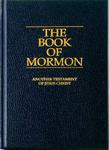 Media coverage continues to focus on GOP presidential hopeful Mitt Romney’s Mormon faith, which according to the Pew Research Center represented half of all religion-based stories in 2011.
Media coverage continues to focus on GOP presidential hopeful Mitt Romney’s Mormon faith, which according to the Pew Research Center represented half of all religion-based stories in 2011.
Looking back a few years ago during the 2008 presidential race, candidate Barrack Obama’s faith made national headlines when bogus reports surfaced saying he was a Muslim. This undoubtedly had to be addressed not only because President Obama is a Christian, but any links to the Qur’an can have a negative connotation, especially given the Country’s fight against terrorism and Islamic fundamentalism.
How important to voters is a president’s belief system? A simple Internet search will reveal thousands of opinions on the subject. While separation of church and state is rooted in America’s DNA, a president’s moral belief system can play an important role in America’s future. This includes picking a Supreme Court Justice for nomination, which can impact landmark decisions like Roe V. Wade granting a women’s right to choose on abortion.
Moral character and religion are not necessarily equal, although some would argue that a faith belief system builds moral character, an issue that can debated indefinitely. Freedom of religion is a basic tenant of the U.S. Constitution. America prides itself of religious tolerance, although a candidate’s faith certainty becomes a factor when casting votes for the nation’s highest elective office.
Putting credentials and electability aside, is America ready to elect a Mormon? What about a Muslim? No doubt there is a negative spin associated with various faith denominations that can impact an election’s results. History proved otherwise however when the U.S. elected John F. Kennedy as the nation’s only Catholic president, a key issue for him during the 1960 election.
So, while religion may be a factor in choosing a presidential candidate, it may not be the deciding vote.
